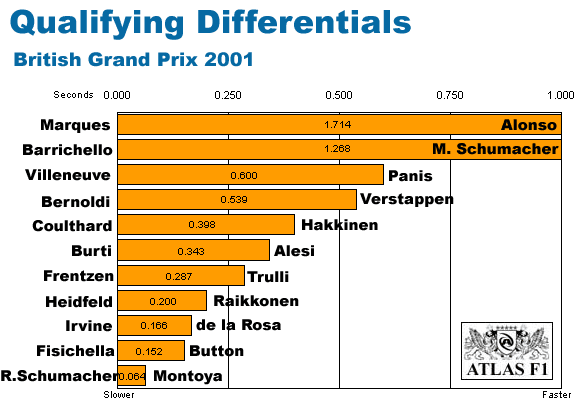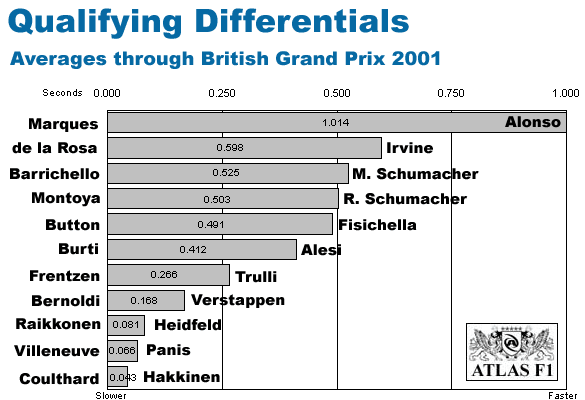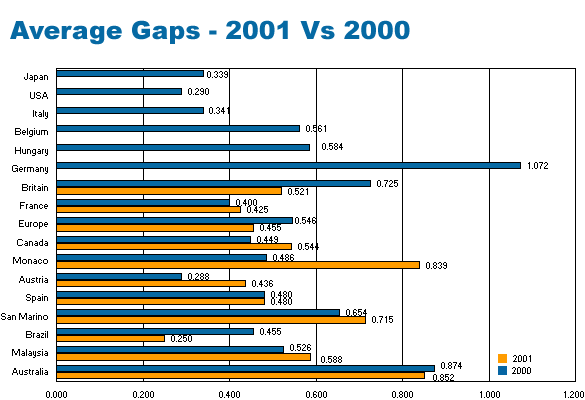
Atlas F1 Magazine Writer
For the fourth year running, Atlas F1 is going to keep an eye on the battle between teammates throughout the season with a simple measurement: we compare the qualifying times of each driver against his teammate's result. After every Grand Prix, we will show how teammates have fared up against each other, and where they are overall since the beginning of the season. At the end of the season, the World Champion of Qualifying Differentials will be elected - the driver who was most beaten by his teammates, in seconds. Only those who participate in at least 15 of the 17 rounds are eligible for the coveted crown; and for those who made the efforts and participated in all 17 races, the best and worst result will be scrapped.
Britain Notables
The average gap between teammates in France was 0.425 (as opposed to 0.400 last year) and in the Nurburgring it was 0.455 (as opposed to 0.546 last year). This, compared to Canada, where the gap was 0.544; or Monaco, where the gap was 0.839s; Austria, where the gap was 0.436; Spain - 0.480s; 0.715s at the San Marino Grand Prix; 0.25s in Brazil; 0.588 in Malaysia; and 0.852 in Australia.
With eleven qualifying sessions completed for 2001, the differentials are on a roll! Let's see which drivers deserve bragging rights.



Please Contact Us for permission to republish this or any other material from Atlas F1.
|
Volume 7, Issue 29
Atlas F1 Exclusive
Interview with Button
Tales from the Thirties: Tripoli, 1933
British GP Review
The British GP Review
Reflections from Silverstone
The Final Straw
Columns
Season Strokes - the GP Cartoon
Qualifying Differentials
The Weekly Grapevine
> Homepage |